August 30, 2013 | Posted in LGBT THEMES, ROMANCE | By sockii
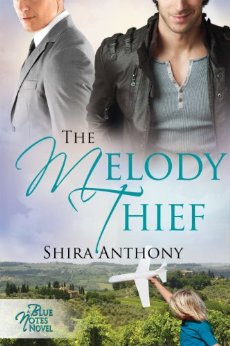
The Melody Thief by Shira Anthony. Available on Amazon.
My Rating: *** (3 out of 5 stars)
I keep trying, and keep struggling, to get into the original m/m romance and erotica genre. If that seems odd to you then it’s personal revelation time (but not for those who know me well): for many years I was an active consumer, writer and fan of slash fan-fiction, and I’m not ashamed of that. I greatly enjoyed these stories that took my favorite characters from television, film and other media into new and “unexplored” (officially at least) territory. These stories were my escape, my guilty pleasure, my comfort reading for many years.
The problem is, there hasn’t been a new “fandom” that’s excited me in quite some time. The last very large fandom I really got involved with was Star Wars after the release of The Phantom Menace (shut up, I know. But I was powerless to resist the combination of Liam Neeson and Ewan McGregor. Mrowr.) I got into a few small, “orphan” fandoms after that but those tend to run out of good stories and good writers very quickly.
So I keep looking to the original gay fiction genre to scratch my itch for the kind of romance stories I enjoy. But for the most part I keep coming up short on getting the same satisfaction from these books and stories I get out of really great slash fan-fiction, and I keep trying to figure out why.
There have been a few such series I’ve really enjoyed, most notably Michael Schiefelbein’s Vampires series (I still have the last book waiting on my shelf that I’m saving for a rainy day). But for the most part I end up finding a lot of the small press m/m romance books lacking in what I get from good slash fanfic: compelling, interesting and “hot” stories about characters in which I can become emotionally invested enough to care what about what happens to them.
Shira Anthony’s The Melody Thief came close to scratching that itch for me, but didn’t quite hit every “note” to my satisfaction. Even so, it was close enough that I may give more titles in the “Blue Notes” series a go as this title did succeed with some of the relationship dynamics and aspects of what I do love in romance fic.
The Melody Thief
The basic story
The central character of The Melody Thief is Cary Redding. He’s a successful and talented cellist living in Milan and in demand all around the world. But a troubled childhood and domineering, demanding mother has left him with little sense of his own self-worth beyond what he can achieve with his instrument. When not performing, Cary disappears into the seedy bar scene looking for cheap thrills – and meaningless sex – under the pseudonym “Connor” so as to protect his career and real identity.
One night he is assaulted returning from a bar and rescued in the nick of time by Antonio Bianchi – a gorgeous, slightly older lawyer who takes “Connor” in under his wing while he heals from his physical injuries. But can Antonio also heal the hurt in Cary’s heart? Can Cary do the same for Antonio, allowing him to finally move on from the loss of his own long-time partner years ago? And how will their relationship be complicated by Antonio’s young son with a lesbian childhood friend and her partner, and the sudden return of someone from Cary’s past long thought dead? These are the some twists and turns of the story of The Melody Thief.
My Review
A reasonably entertaining read if lacking in real emotional depth
This book was recommended to me when I was at MediaWest*Con earlier this year, and browsing some of the goodies available from the other vendors in the dealers room. Dreamspinner Press was one such vendor there and I was curious to check out what they had to offer since I hadn’t read any of their titles before. I described what I tended to like and what I wasn’t so interested in. Personally, I’m really not into kink for kinks’ sake, which ruled out a lot of offerings. I also tend to like more mature characters – ie, no “twinks” or guys just out of their teenage years; I want characters who have some life experience and past behind them that makes for an interesting story. That also seemed to rule out a lot of the titles they had available.
But I do like stories that weave music/musicians into the story and don’t mind a little age/experience imbalance between the characters – hence The Melody Thief was offered to me as perhaps the title I’d find most interesting. I was sold on several aspects that appealed to: the setting in Italy, the main character being a musician, the dynamic of a (slightly) older stoic character and a younger, more impetuous one, each with their own issues to work out. To a degree, the book delivered on each of these points, although perhaps not quite to the degree I’d been hoping for.
At first, I was concerned that the story was going to be too much about Cary trying to figure out how to come clean to Antonio about his “double-life” and who he really was. Fortunately that part of the story is actually resolved fairly quickly, and the other issues in these characters lives come more to the forefront. Cary is struggling with the idea of someone wanting to have a real relationship with him when he feels unworthy of it. He struggles, too, with Antonio’s silence over his previous partner, and if he can ever truly fill the void left in Antonio’s heart. He also has to deal with the complexities of Antonio being a father, and developing a relationship with young Massimo when his own childhood was so difficult and stilted by his mother’s pressure to push him as a musician and the absence of his father.
That missing father becomes a central part of the second half of the story. What do you do when someone you believed dead – someone who was never part of your life in a way you remember – suddenly appears out of nowhere and wants to re-establish a relationship with you? This was the point where the story became most interesting to me, and I thought Shira Anthony did a very good job trying to explore these issues within the constraints of what is otherwise a fairly traditional romance novel. There were parts of this story which hit unusually close to home for me on many levels and with many of the revelations that followed, even if they were a bit telegraphed by the writing. Still, it made the story more interesting and absorbing to me.
A bit less successful from my point of view was the evocation of Milan as a setting and environment. I know Milan is not the most romantic and beautiful of cities of Italy but I have been there, and really did not feel as if The Melody Theif evoked much of its atmosphere or made me feel as if I was in the city versus any other generic “European” locale. Just throwing out the name of the Sforza Castle or talking about a small cafe near the main train station didn’t transport this reader there. Again, I think back on how fantastically Michael Schiefelbein evoked the atmosphere and feeling of Rome in Vampire Thrall, how much that added to that particular story, and I know it’s something a skilled writer can do when they really know and love a city. I didn’t get that feeling of Milan here.
I also, honestly, ended up skimming over most of the explicit scenes as I didn’t feel like they were adding real character development – and just weren’t interesting reading to me because I hadn’t reached that level of connection with the characters. There was nothing necessarily wrong with how they were written, but I just wasn’t invested in the characters enough need to know the details of their sex life or find it particularly worth reading in detail.
All in all, it was pleasant enough light reading that I basically finished over three afternoons at the gym. The book was cleanly edited and published with no glaring typos or formatting issues as can be the case with some small press publishers. I wouldn’t say I found it worth the cover price I paid for the paperback edition, but it would have been a fair read for the Kindle price. That’s probably how I’ll go if I end up reading the rest of the “Blue Notes” series in the future.
Other Titles in the “Blue Notes” Series
Available in paperback and Kindle formats
There are currently 4 published books in the “Blue Notes” series, each of which can be read as a “stand alone” novel. They explore some of the other characters in the same universe and all feature a classical music theme in some way.
You can also learn more about the author’s other romance books and upcoming publications at Shira Anthony’s Official Website.
Related posts at Spacial Anomaly
Table of Contents
sockii
sockii is just your typical Jane-of-All-Trades who never has enough time in her day for all of her projects. She has written for many websites online including Squidoo, Zujava, Yahoo! Contributors Network, HubPages and Wizzley. She has been attending and vending at science fiction and media conventions for over 15 years, and for several years ran an art gallery and jewelry store in Philadelphia. Today she is happy to be living in South Jersey with her partner David and their 6 cats. Sockii is a member of several affiliate sales programs including Amazon Associates and Viglink. Products from these services may be advertised on her posts and pages to generate sales commissions.
7 Comments
- The City War by Sam Starbuck: Roman politics, intrigue and sexuality explored - […] with m/m-themed novels from several small presses (see my recent reviews of After Ben and The Melody Thief). A…
Leave a Reply
*
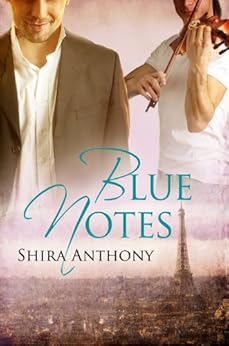
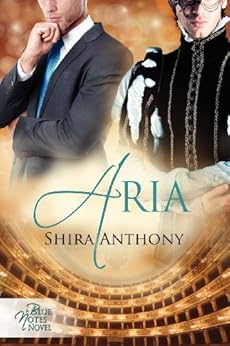
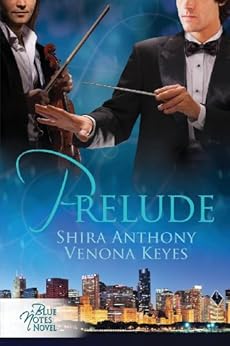
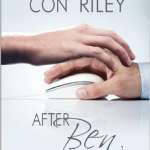
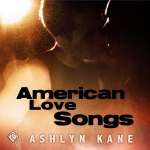
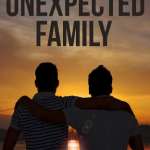
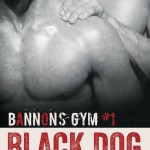








Zoe X. Rider
August 30, 2013
I have a similar problem getting into original m/m romance and m/m romantic erotica (and I so wish I didn’t!). It’s hard for me to get sucked into a book–any book–but because I ~write~ m/m stuff, I feel like a big hypocrite when I stop reading yet another m/m book two or three (or six) chapters in, but I just don’t have the patience for the typical writing style in the genre. (And just to be clear: I’m not saying that the typical writing style is “bad,” just that it doesn’t speak to ~me~. I can’t get into all those super-popular J.D. Robb, Richard Kadrey, etc, books either.)
So that said: I did really enjoy a couple books recently.
The first is Unhinge the Universe by Aleksandr Voinov and L.A. Witt, published by Riptide Publishing. It’s about an SS Lieutenant taken prisoner and interrogated by Americans in France. I was a little worried going in it that it had the potential to be sexploitative, if you know what I mean, but I think Voinov and Witt actually handled it well–they made both of the main characters people. They also did a great job with the setting (both time and place, but mostly place). It’s not perfect–there’s a section in the late middle I mostly skimmed (you’ll know it when you see it), and there are a few small plot holes you have to dodge, but the rest is definitely above average in the genre, and there were a few scenes that had me on the edge of my seat, which always makes me happy.
The other is by a Dreamspinner Press author, T.J. Klune: Into This River I Drown. Disclaimer: I haven’t actually finished it yet – life got in the way. But what I’ve read so far has been wonderful. (And I’ve already gone and bought another of his books, just because I’ve liked what I’ve read in this one so much.) The main character isn’t as old as you would probably like, but on the other hand, the character development…and the writing style…and, just…I don’t even care that the love interest is an angel (not normally my cup of tea, nonhuman love interests).
sockii
August 30, 2013
Thank you for the recs – I will definitely look into them! Having characters that really come to life and feel like real people is definitely the crux for me. If I can’t actually visualize them in my head, if I can’t feel like these people could actually exist, then I’m just not going to be able to get into a story. Especially when it’s a romance/erotic romance where the whole point (or so I thought) was to become wrapped up in their story and want to get “swept away” into it all.
I guess that’s partly why fanfic works better for me – here we have characters that have already been brought to life, I’m already invested in them, I want to see more before I’m even starting the story. Band fiction is based on the public persona of the people being used as characters. Perhaps that’s why there tends to be weakness in a lot of the m/m original fiction written by people who came out of slash fandom – they’re used to writing in shortcuts, not really experienced in what it takes to bring a character to life from scratch.
Zoe X. Rider
August 30, 2013
“Especially when it’s a romance/erotic romance” – Yes, I’ve been thinking/talking lately about character-driven erotica vs. sex-driven erotica, and I think a lot of band fiction/fanfic–and subsequently fanfic with the serial numbers filed off–falls into the sex-driven erotica/sex-driven-romance category precisely because, as you say, the “characters” are already developed in writers’ and readers’ minds, so let’s get down to business (whether it’s the business of sex or angst or hilarity or whatever). The problem is that it doesn’t ~feel~ story-driven to us as readers (or fanfic authors) because 1) the stories are about relationships (how could those not be character-driven!) and 2) the characters come (in large part) pre-developed. But then when you take that story and change the names and possibly the occupations and eye colors of the main characters, it gets completely divorced from the source and becomes hard to connect with.
A lot of original m/m reads like fanfic with the serial numbers filed off, even the stuff that didn’t start out as fanfic, and I think it’s because many of us, even the ones who are “good writers” didn’t develop our character development muscles. So we bumble when we try to get background info for the characters in there–we end up “telling” who these characters are, and we explain how they’re in X situation because Y, but really the characters exist for the purpose of the story, and their actions and emotions aren’t really informed by the entirety of their lives ~before~ the story–or if they are, it’s kind of forced in with a pry bar (“because of his tragic childhood, he is an angsty little ball of angst,” or “because of his shitty childhood he’s a scrappy ball of scrap,” that sort of thing). And then that ultimately leads to–I know it does in my case at least–weaknesses in the story as a whole. If the character is making decisions because “that’s how the story goes,” or if he’s ~not~ making decisions and is instead just bobs along wherever the story-river takes him, it’s not a satisfying read. Maybe it works for a truly plot-driven book, but not when the book is about relationships/love/sex/needs/etc.
(And the other reason it reads like fanfic is because it uses the same style conventions popular in fanfic. Granted there is quite a bit of fanfic that stands out, some really amazing, beautiful stuff, but if you take that out, and if you take out the pure dreck, a lot of the average stuff that’s left is really similar in its use of language and structure. This is neither good nor bad; it just is.)
sockii
August 30, 2013
*nods* Totally agree with everything you say here, it matches much of my experience reading original m/m and why so much of it doesn’t work for me. Especially this:
“A lot of original m/m reads like fanfic with the serial numbers filed off, even the stuff that didn’t start out as fanfic, and I think it’s because many of us, even the ones who are ‘good writers’ didn’t develop our character development muscles.”
That’s largely why I think I’m a bit stalled out on the few novels I’ve been working on. I know I need to develop my character-building chops first, perhaps create character bibles and not rely on the inspiration in my head, where I am likely taking short cuts because these original characters are somewhat inspired by characters I’ve written in fanfic. Not to the extent of filing off the serial numbers, but physical characteristics, personality quirks, etc.
I read a couple “original” novels last year from one publisher which were admitted boy band/”bandom” stories with the serial numbers filed off (one I think originally based on Nsync, the other Fall Out Boy) and I hated them. Haaaaaaaate. Like only finished them because I wanted to write good ranty reviews after the fact. Because the characters were so flat and un-developed, not because I had an objection to the musical genre these characters/bands were associated with.) There was nothing there to draw me into the stories whatsoever, even if the prose was grammatically, technically fine. I was just bored and disconnected the entire time.
Well, I will keep reading and trying new authors. I have a backlog of books and recs to get through and at least most of these novels are pretty quick, fast reads.
Zoe X. Rider
August 30, 2013
One thing I did with the novel I have subbed out at the moment is write chapters that took place in the characters’ past. I did this during the second draft, with the intention of alternating between current day and “way back when.” The story’s about two guys who’ve been friends for 14 years, bandmates for 12, and the “in the past” chapters covered when they met, the one’s influence on the other’s music, how they ended up in a band together, etc. In the end, I cut those chapters from the book because 1) the story-present story ended up being 80,000 words as it was and 2) there wasn’t really a good ending point for the “back when” chapter–the subplot didn’t really go anywhere, and I felt it needed to if it was to stay in. Nonetheless, what was in those chapters informed they entire final act of the novel (and improved some of the early parts, too, but mostly they made the final act much better than it would have been).
Another novel I’ve been working on, the first draft has a lot of issues with the non-POV characters–they appear when they’re needed, disappear when they’re not, and their moods at any given time are dictated by the plot (which makes one of the characters a bi-polar bitch, more or less). So I’ve been writing plot synopses from their POVs to figure out they’re up to when they’re not “on screen,” what their wants and goals are, etc–trying to get them some agency so they don’t read like I have my hand up their asses. I’ve been considering writing some journals from their POVs, too–not a whole novel’s worth, but just to get an idea going in their heads when they’re confronted with some of the things that happen in the story. Another tactic I’m considering is writing excerpts from biographies about them (they’re musicians, and their band has a rather mythological breakup, so there would be plenty of books and articles written about them. I’d already written a few things like that–the intro to a book about the band, an interview with the main character, a snippet of radio dialogue between two morning DJs discussing the band–that I intended to include in the book; I wouldn’t complain if, in profiling the other band members, I wind up with more such material to put in the book).
Annnnd, finally, Holden’s Roughing It novella got character development (rather late in the writing process) all thanks to its blurb. I had completely revised the original story, but knew it needed another thorough pass. As a break from working on the story, though, I wrote up the a blurb for it…and in the blurb I said a bunch of things about the main character that weren’t in the story at all (and didn’t exist in my head till I put the blurb together). I liked the ideas enough to go back and work them into the story, though…at which point one of them turned into the character’s actual motivation for why he does the crazy stuff he does (though I couldn’t say for sure how well that last part is obvious from reading the story–it’s so tough to find the fine line between saying “THIS IS WHAT IT IS YOU GUYS” and being so subtle about it that it goes right over readers’ heads.)
So if “character bibles” feel stodgy when you start working on them, there are lots of other things you can do to explore your characters (and you never know–some of that extra work could turn into short stories you can offer to readers who get hooked on the characters).
sockii
September 1, 2013
Ah ha – great advice about writing back stories and working on the non-POV characters. That could definitely work really well for the one novel I would really like to get done, but I can see where I need to bring the supporting characters more to life – and how that could help me with the main characters as well.